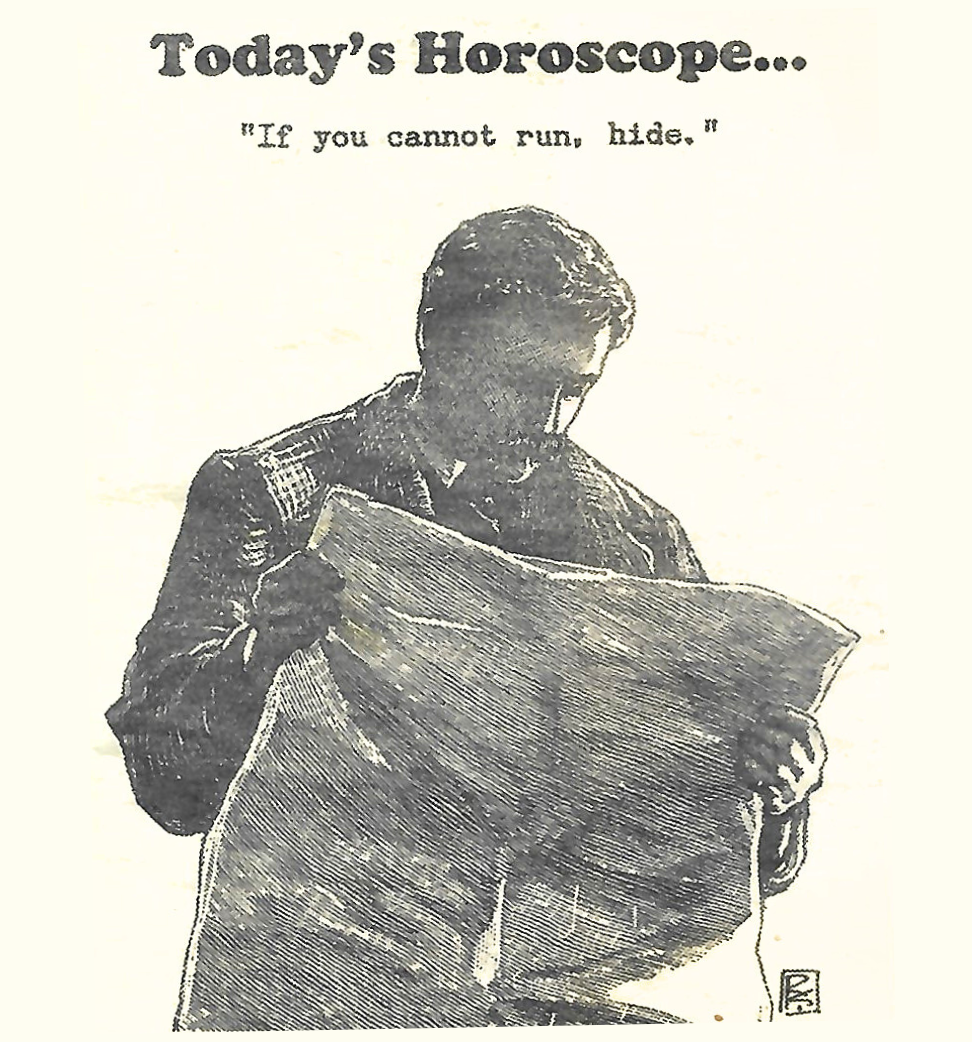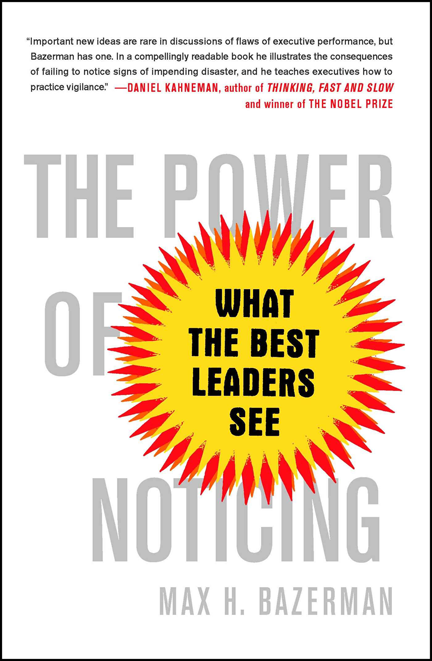LEARN A LITTLE:

Knowing Yourself Isn’t Enough
In this month’s blog, I am sharing some thoughts and insights I have been putting together regarding the concept of the self. I actually like the original Old English definition of self: “One’s own person,” that is, our unique thoughts, emotions, beliefs and values that help us know who we are. And I’m sure every reader is familiar with Socrates’ famous quote, “To know thyself is the beginning of wisdom.” While it may be the beginning, self-knowledge by itself is not sufficient to live one’s best possible life.
It is my current thinking that we encounter five different aspects of the self as we journey on the road called life. Each of them is important and connected. To some extent, they represent stages, but all are revisited because they are never truly achieved. These five aspects of change and development are knowing yourself, accepting yourself, checking yourself, improving yourself and going beyond yourself. I briefly touch on each one below.
Knowing Yourself
When seeking to become your best possible self, it is indeed helpful and necessary to be curious and self-reflective. Self-discovery is not an activity we address once and never revisit again. We are constantly changing, sometimes without our awareness.
We need to explore many areas. For instance, ask yourself:
- What are your key values, beliefs, strengths and weaknesses?
- When are you at your best? Your worst?
- How are your relationships?
- How do you manage your thoughts and emotions?
- How energetic are you, and what is the nature of your physical health?
- What is your personal style, the nature of your personality?
- Where are you on the introversion/extroversion scale?
- What are you good at and not so good at?
- What do you worry about? What keeps you awake at night?
- Do you know what you want in life right now? In the future?
- How contented are you?
Knowing yourself may not come easily, but it is the beginning of the getting-better journey.
Accepting Yourself
It takes a reasonable amount of personal courage and maturity to accept and realize who you are. It is vital to keep in mind that everyone has strengths and weaknesses; however, we all also have limitations.
The purpose of this activity is to help you be successful in the present and plan for the future. In this regard, it is important to recognize what you can and cannot control in your life. In other words, there are some things about you and perhaps your life that you cannot or may not be able to change.
In accepting yourself, you are not making the mistake of comparing yourself to others or engaging in negative self-talk. Do identify your strengths and strong points. It’s good advice to try to work from this vantage point and go forward. And here is an important bit of advice—keep on accepting yourself. It’s an ongoing necessity. Sometimes we may, in fact, need to re-believe in ourselves. Accepting yourself allows you to continue to go forward and experience joy and meaning in life.
Checking Yourself
I think it was an old Blues song that included the line, “You better check yourself before you wreck yourself.” It tends to capture the intent of this aspect of self-reflection. It involves knowing what’s working or not working in your life. Ask yourself, “Where am I making progress? Where am I losing ground?” Pauses in life are important. You need to quit being so busy, stop for a while and take a good look at your life and behavior.
- How are you doing emotionally?
- How are you handling your stress?
- Are the important things you have identified in your life getting the attention and priority that you desire?
- Are you working out of your strengths?
- Are you doing what you should be doing?
Some individuals find it helpful to keep a journal in which they jot down their daily reflections so they can monitor and track their progress. Checking yourself can also be a matter of self-care, taking time to look after your health and well-being while promoting personal growth.
Improving Yourself
This aspect of self clearly builds on the previous “checking yourself” endeavor. Once again, it is critical to remember that the goal is progress, not perfection. There are many ways to go forward with improvement in our lives. My suggestion is to have two general targets—work and career growth and personal, non-work-related development.
Essentially the task is to reflect on the areas of concern as revealed by the checking/assessment times, and establish three to five goals and respective action plans for each of the two target areas. The exact number selected is highly individual and may vary with life circumstances.
Success usually comes through taking gradual or incremental steps, along with the development of new habits and/or routines. What’s important is to be moving in the direction you want to go and define the scope of improvement.
Don’t forget to track your goals and celebrate your successes. Once again, this is an aspect of the self that is always in play.
Moving Beyond Yourself
A true story: A friend of mine wrestled with depression for many years. He had tried many different antidepressant medications, but nothing seemed to work. One day, a colleague urged him to volunteer at a local mission that needed all kinds of help. He did so, and I caught up with him after he had volunteered there for a few months. He seemed changed and he actually had. When I asked him what was going on, he said, “I think when you are thinking about other people, you have less time to think about yourself.”
It’s actually a well-researched fact that kindness, helping others and volunteering improves our health and even how we feel about ourselves. As many people come to realize, purpose and meaning in our lives may be more important than wealth, fame, power or influence. Purpose brings a sense of fulfillment and peace into our lives that is beyond the self. With it comes gratitude, graciousness and generosity.
I welcome your comments, suggestions and experiences as I continue to develop these thoughts.
*Thanks and acknowledgement to Daryl Van Tongeren, PhD, associate editor of The Journal of Positive Psychology, for his research on humility and perspective on knowing yourself, checking yourself and going beyond yourself.
LAUGH A LITTLE:

REFLECT A LITTLE:

Proverbs 29:2
When good people run things, everyone is glad,
but when the rule is bad, everyone groans.
READ A LITTLE:

The Power of Noticing: What the Best Leaders See
Max Bazerman
(Simon & Schuster, 2014)
I first became aware of The Power of Noticing while reading another book concerning ethical failure in our society. I was familiar with the author because of his extensive research in business negotiations. Max Bazerman, is a professor of business administration at Harvard University, as well as being a well-respected researcher in the field of behavior economics.
While The Power of Noticing was written nearly ten years ago, it remains relevant today, especially given the current political and economic machinations. While the book highlights the importance of noticing to leaders, his insights and practical advice are valuable to all.
The goal of the book is to help readers increase their skill and capacity to notice. It is less than 200 pages and is an interesting, easy-to-read book. Bazerman raises many important questions and makes us more aware of the consequences of not being aware of what might actually be right in front of us. A selected number of helpful insights are shared below.
In unfolding this book, Bazerman shares several stories that will be familiar to most readers: the Challenger Space Shuttle, the Enron disaster, the Penn State sexual abuse cover up and the Hurricane Katrina response. What they have in common is a failure to notice.
What follows are research findings that may inform your own behavior.
“What’s in front of you is rarely all there is. Developing the tendency to ask questions like ‘What do I wish I knew?’ and ‘What additional information would help inform my decision?’ can make all the difference.”
We should not “limit our analysis to easily available data rather than asking what data would best answer the question at hand.”
“Failing to generate new options can lead to subpar decisions.”
“When we have a vested self-interest in a situation, we have difficulty approaching that situation without bias, no matter how well-calibrated we believe our moral compass to be.”
“Leaders often fail to notice when they are obsessed by other issues, when they are motivated not to notice, and when there are other people in their environment working hard to keep them from noticing.”
“A failure of oversight—not detecting when employees were taking risks out of range of what the banks (any organization) should tolerate—and a failure to ask the questions that would uncover the critical information that was needed.”
“It is the responsibility of leaders to notice when things are going seriously wrong.”
“Leadership requires us to question unusual patterns of data and demand the necessary information to reach accurate conclusions.”
“Extensive research demonstrates that our desires influence the way we interpret information, even when we are trying to be objective and impartial.”
One of my favorite chapters was titled, “What Do Magicians, Thieves, Advertisers, Politicians, and Negotiators Have in Common?” I’ll make answering the question easy for you—“misdirection.”
“Those who want to misdirect us do not want us to be logical. They want to hijack our thinking and manipulate us to do what they want.”
“When our goal becomes simply to notice, we can avoid the misdirection of magicians and others who borrow from their craft.”
“Most people tend to be overconfident, and some experts have argued that overconfidence is the most important of all decision biases. Because overconfidence can prevent us from noticing the downside of our actions.” Note: The author points out that this quality is especially common to executives who have exaggerated regard for their own judgments.
“We tend to pay far more attention to harms caused from action—than harms from inaction.”
“Positive illusions—the tendency to see the world the way we would like it to be.”
A comment regarding media. “The media continue to favor simple stories that could be explained in 60-second segments rather than questioning systems that they do not comprehend.”
“Too much trust, you’re a sucker. Too much mistrust, and you could miss an opportunity.”
”One skill of successful leaders is that they prevent predictable surprises.” (Read the story of Hurricane Katrina to learn more.)
“A predictable surprise arises when organizational leaders have all the data they need to recognize the potential for a crisis, and even its inevitability, but fail to respond with effective preventative action.”
“A first-class noticer is someone with a good eye, especially for human behavior. First-class noticers are intensely attentive: they recognize talent and see opportunities that others miss. They are less likely than most to be blinded by what they want the data to be and more open to what the data actually suggest. Thanks to their tendency to think multiple steps ahead, they have the capacity to identify when change is needed and then make the change.”
Until next time,
Art Dykstra
Purchase this and other recommended books at your local bookstore or through the HighTidePress.org bookstore.
All High Tide Press sales benefit persons with disabilities.
Cherry Hill Consulting Group and High Tide Press
are Visions of Trinity Foundation - 101 Hempstead Place, Joliet, IL 60433


